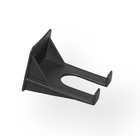Cardiogenic shock
Want to watch this video? Sign up for the course
or enter your email below to watch one free video.
Unlock This Video Now for FREE
This video is normally available to paying customers.
You may unlock this video for FREE. Enter your email address for instant access AND to receive ongoing updates and special discounts related to this topic.
Cardiogenic Shock: Symptoms and Emergency Treatment
Overview of Cardiogenic Shock
Cardiogenic shock is a severe medical condition where the heart is unable to pump enough blood and oxygen to the brain, organs, and tissues. It is most commonly triggered by a severe heart attack.
Signs and Symptoms of Cardiogenic Shock
- Rapid heartbeat (tachycardia): The heart races to compensate for decreased pumping capacity.
- Low blood pressure (hypotension): Significant drop in blood pressure due to ineffective blood circulation.
- Rapid breathing (tachypnea): Increased respiratory rate to compensate for reduced oxygen levels in the blood.
- Shortness of breath: Difficulty breathing, even at rest.
- Cold or clammy skin: Skin feels cool and sweaty due to decreased blood flow.
- Decreased urinary output: Reduced urine production as kidneys receive less blood.
- Altered mental state: Confusion, anxiety, or loss of consciousness due to decreased blood flow to the brain.
- Pale or bluish skin (cyanosis): Skin appears pale or blueish due to insufficient oxygen in the blood.
- Swelling or edema: Fluid accumulation in lungs and other parts of the body.
- Fatigue or weakness: Feeling extremely tired or weak.
- Chest pain or discomfort: Persistent or intermittent pain in the chest.
Emergency Response and Treatment
Immediate medical attention is essential if cardiogenic shock is suspected.
Key actions include:
- Calling emergency services immediately.
- Administering appropriate medical interventions to stabilize the patient.
- Providing oxygen therapy to improve oxygen levels in the blood.
- Monitoring and managing fluid levels to support heart function.
- Addressing underlying causes such as heart attack or arrhythmia.
Quick intervention can significantly increase the chances of survival and reduce complications associated with cardiogenic shock.
Recommended Products For You
Lifesaver Kit with Tourniquet - Red
£99.00 + VAT
Lifesaver Kit with Tourniquet - Green
£99.00 + VAT
Lifesaver Kit Ultra - Black
£99.00 + VAT
Personal Bleed Kit in Belt Pouch - Red
£34.95 + VAT
Woundclot Trauma Dressing 10cm x 10cm
£11.95 + VAT
WoundClot Trauma 20cm x 30cm
£37.95 + VAT
First Aid Box Wall Bracket (Single)
£0.35 + VAT
Lifesaver Kit with Tourniquet - Black
£99.00 + VAT




_-Trauma_10x10_CE.jpg)
_-Trauma_20x30_CE.jpg)

